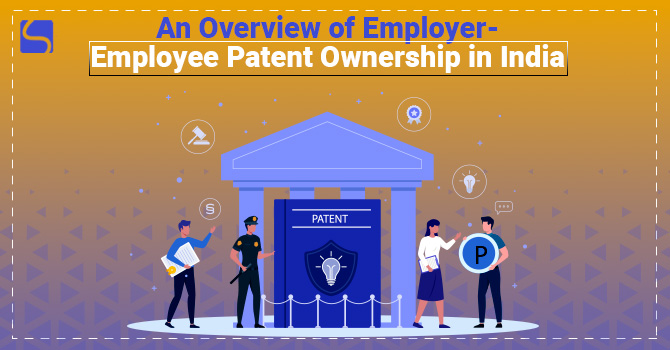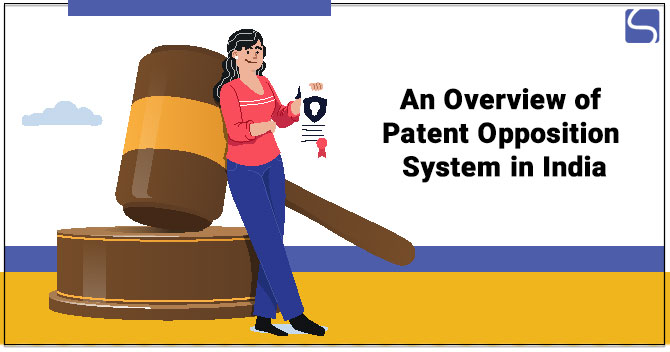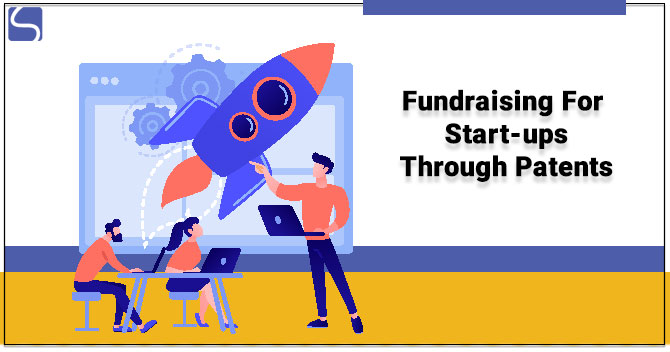Employer – Employee Patent Ownership in India – An Overview

Karan Singh | Updated: Feb 21, 2022 | Category: Patent
Big tech companies depend on the inventions of their employees and, as a normal practice, Patent the inventions or innovations in the name of the company. The employees assign their Rights to the employer via pre-assignment and assignment agreements. In India, this practice becomes vital owing to the lacuna in the Indian Patent Act, 1970. No provision in the Act states the Patent ownership invented by the employee under the guidance of the employer. Interestingly, despite being an older statute, The Copyright Act includes the precise provision while the Patent Act doesn’t. In this write-up, we shall discuss more on Employer-Employee Patent Ownership in India.
In the absence of any related provision in the Indian Patents Act, the assignment agreement supports the employer to register or incorporate the Patent under his or her name. Since the inventor is regarded as the 1st Patent owner, one question that arises from this is what happen when the employees are not made to sign such pre-assignment & assignment agreements?
Table of Contents
What do you mean by a Patent?
A Patent is a type of IPR (Intellectual Property Right) permitted for an invention of a process/product. The inventions fulfil the criteria of uniqueness, usefulness and non-obviousness to be eligible for Patent Registration. The current Patent Act is a consolidation of the earlier Patent Laws existing in India. The Patent Act[1] states the category of inventions not eligible for Patents in Section 4 & 3. With the following amendments, the issues or problems of exclusive marketing rights, post & pre-grant opposition, and Compulsory Licensing have been dealt with.
An application can be filed either by the inventor or assignee. A Patent creates an exclusive right and restricts others from using, selling, offering, or making to sell the patented product or process. A Patent is valid for only 20 years from the Patent filing date in India.
Employer-Employee Patent Ownership
Companies invest their time and money in R&D (Research & Development) to get an edge over the competition in the market. For example, huge amounts of resources are being employed by the Pharmaceutical Industry to produce vaccines for Covid-19. It’s a common practice to register Patents under the name of the company. Hence, the legal framework safeguarding IPR should be sensitive to the valuable investments made by employers in giving trade secrets, equipment, and financial help to the inventors. But the Patent Act is oblivious to the effect of the Employer-Employee relationship on Patents. The Law regards the inventor to the 1st Patent owner, which creates a huge risk for the employers. The lack of provision permitting employers to reap benefits from the investments destroys the country’s spirit of research & invention. Moreover, some foreign laws on Employer-Employee Patent Ownership are studied to give a better understanding of the International Patent Laws and determine the flaws in its Indian counterparts.
Patents on Created Work at the time of Employment Course – Employer-Employee Patent Ownership
The employment course can extensively be understood as the time during which an employee performs the regular duties assigned to him and time spent on the premises of the employer preparing to start or depart from work. While the Copyright act discusses ownership rights to the employer, the Indian Patent Act considers the inventor to be the 1st and leading owner of an invention. There exists no provision that permits the courts to identify the right of an employer over an invention created at the time of employment course. This poses a key issue as employers might be unable to gain ownership rights from an employee consequently.
In the matter of Gharda Chemicals Ltd vs Darius Rutton Kavasmaneck (2014), the Bombay High Court refused to change the legislative defect and set up a precedent protecting the employers’ rights. The court clarified its decision by pointing out that a company’s Managing Director (MD) is not supposed to be involved in the area of R&D. Hence in the present case, the inventor is the correct owner of the inventions made by him. It was held that the MD of the Chemical Company had a legitimate right to register Patents over different inventions and since they had never demanded compensation from the company under which he or she was employed, there was no reason for the company to alter the current situation of Patent ownership.
Employer-Employee Patent Ownership Laws in the UK and US
- Employer-Employee Patent Ownership in the UK: The laws of nations such as the United Kingdom, China, and Israel have presented a provision of deemed ownership. This provision relies on the principle of duty to invent by which a person or an individual is restricted from obtaining ownership rights over a work done at the time of the employment course. Section 39 of the UK Patents Act, 1977 allows the employer to an invention made by an individual or a person at the time of employment course; but, the employer should demonstrate a valid relationship to seek relief under the Act. The English Law allows an employee to act as a trustee for the employer in terms of Patent Ownership. The employee is bound to transfer the rights to the employer, and the employer is protected with the right to cancel the grant of the Patent to the employee with a reasonable time and apply for a new Patent.
- Employer-Employee Patent Ownership Law in the USA: The USA has a jurisprudential tradition of using the idea of shop-right to protect the employer’s interests. A shop right is a non-exclusive license granted or permitted by the employee to the employee, letting him use the invention for financial gains without asking the inventor. This right cannot be transferred by the employer, who remembers the license even if the investor sells their ownership rights in the Patent.
For example, in the matter of Miller vs Goodyear Tyres & Rubber Company, the petitioner company sought particular performance of an agreement by which the defendant was supposed to transfer & surrender their interest in a respected invention. The invention was made at the time of employment course and utilising the resources of the company. Hence, the court observed that if a company is to be refused the fruits of its success, it will finish subsidising failure and experimental departments will go.
Conclusion
There is no doubt or issue that the Legal System of India must teach the measures implemented by other nations to safeguard the rights of the employer. The jurisprudence on Patent Laws must progress to sustain & promote the growth in development & invention. Establishing the authenticity of pre-invention assignments and the control of the employer over the employee’s invention can prove to be vital steps to improve the Employer-Employee Patent Ownership structure in India.
Read our Article:How to Get Patent for Startup Idea? – An Overview














